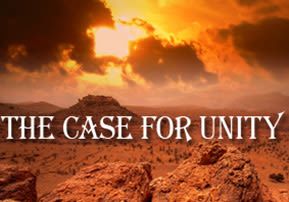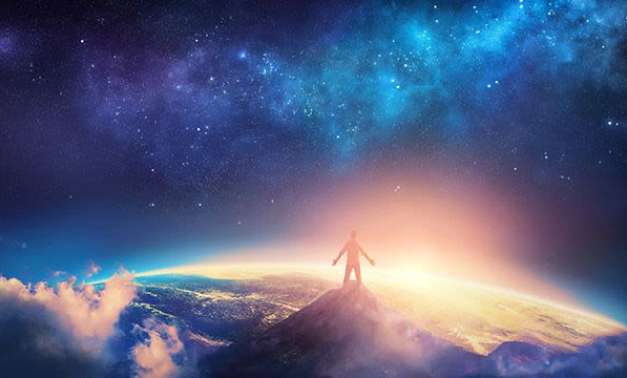FRIDAY NIGHT:
ב: וַיִּסְע֣וּ מֵֽרְפִידִ֗ים וַיָּבֹ֨אוּ֙ מִדְבַּ֣ר סִינַ֔י וַיַּֽחֲנ֖וּ בַּמִּדְבָּ֑ר וַיִּֽחַן־שָׁ֥ם יִשְׂרָאֵ֖ל נֶ֥גֶד הָהָֽר
They journeyed from Rephidim and arrived at the Sinai Desert and encamped in the desert; and Israel encamped there, opposite the mountain. (Shemot 19:2)
One of the most famous comments Rashi makes on the Torah is in this week’s parshah, on the posuk just quoted:
AND ISRAEL ENCAMPED THERE: Like a single individual with a single heart; however, at the rest of the encampments there had been complaining and arguments. (Rashi, Shemot 19:2)
Actually, Rashi is only quoting the Mechilta, the source of this remark. The question is, what prompted the Mechilta to make such a comment that at first is complimentary, but in the end, not so flattering? The answer is not obvious in the English translation, but readily apparent in the original Hebrew, where the word for “encamped” is written in the singular, and not in the plural.
As mentioned in the past, though unity is always a nice thing to have, at Har Sinai and the acceptance of the Torah, it was an absolute necessity. The reason has to do with human nature, namely, that we tend to be subjective, and being subjective, we tend to hear ideas in our own unique ways, through a prism comprised of all our personal experiences and understandings from throughout or lives.
Thus, though only ONE G-d spoke and gave over His Torah, millions of Jews listened and received it, each one having the potential to interpret what he heard in his own personal way. Therefore, when it was all said and done, there was a great likelihood that the Jewish People would leave Har Sinai with somewhere around 2.5 million versions of the word of God – not a good state of affairs for future generations of Jews.
Hence, it was crucial that at least at that time in Jewish history, each Jew possessed the potential to hear Torah AS IT WAS GIVEN – OBJECTIVELY – in the same way that his fellow Jew heard it. It would be bad enough that after the Jewish People left Sinai that many would try to interpret Torah to their own personal liking, but at least at the beginning of Torah history, at the time of reception from G-d, it was received as given.
Now, how do we know that was the case? Because, as Rashi points out, there was sublime “achdut” at the time the Torah was given, meaning that every Jew was able to go beyond himself, and be objective. In other words, achdut and the amount of it that we achieve, is the measure of our objectivity at any given moment in time. It is subjectivity that leads to selfishness, and selfishness that leads to argument.
How did the Jewish people achieve such a phenomenally difficult level of unity amongst themselves? At Har Sinai, when G-d Himself was about to descend to present His Torah personally, the more accurate question would have been, how could you NOT achieve perfect unity! For, the more brilliant the revelation of truth a person is exposed to, the easier it is to focus on matters beyond the self.
This is why learning Torah FOR ITS OWN SAKE, automatically leads to humility. Torah itself is a miniature version of the “Sinai-Experience,” for it is a spiritual telescope with which to “see” G-d. And, the deeper one delves into Torah, the more profound the revelation of truth one becomes exposed to. Thus, the Talmud says:
Torah scholars increase peace in the world. (Brochos 64a)
SHABBAT DAY:
ב: וַיִּסְע֣וּ מֵֽרְפִידִ֗ים וַיָּבֹ֨אוּ֙ מִדְבַּ֣ר סִינַ֔י וַיַּֽחֲנ֖וּ בַּמִּדְבָּ֑ר וַיִּֽחַן־שָׁ֥ם יִשְׂרָאֵ֖ל נֶ֥גֶד הָהָֽר
They journeyed from Rephidim and arrived at the Sinai Desert . . . (Shemot 19:2)
Perhaps this is why the Torah felt compelled to remind us that the Jewish People arrived at the Sinai Desert from Rephidim. Rephidim was the place, in the previous parshah, where the Jewish people complained about a lack of water, and were then subsequently attacked by Amalek, the anti-thesis of the Jewish people.
The Talmud asks:
Why was it called “Rephidim?” . . . Rebi Yehoshua says, “[Because] they weakened themselves (rifu) from Torah.” (Bechoros 5b)
Cease to learn Torah, cease to be objective. Cease to be objective, begin to be subjective. Begin to be subjective, begin to be doubtful – and become vulnerable to an attack from Amalek – whose names equals the Hebrew word “suffek” (doubt)- and become vulnerable to enemies and their machinations.
In order to arrive at Sinai, the place at which the Torah was destined to be given, and more importantly, RECEIVED, we had to first leave “Rephidim,” which, like the city of Shechem, was just as much a conceptual reality as a physical one, if not more. Like Shechem, Rephidim represents divisiveness, the opposite of G-d’s unity, and therefore, the opposite of achdut between Jew and Jew.
However, there is another element to achdut that is just as crucial, if not more crucial today during these treacherous times.
The Talmud reveals:
Abaye said: There are no less than thirty-six righteous people who greet the Divine Presence on a daily basis. (Succah 45b)
What this means is that there are thirty-six individuals whose level of righteousness is so great that the Divine Presence, even today, is available to them. To the outsider, they may appear as nothing more than pious individuals, people who have surrendered their portion of the materialistic world to live a spiritual existence, but apparently they are far more than this; people whose lifestyles we may find it hard to envy.
However, it is G-d’s world, not ours, and it exists according to HIS mandate, and not our version of it. There are many people, who, because of their material success in the eyes of their fellow man, believe they are G-d’s gift to mankind, and act the part. However, in actuality, they may be just the opposite. They may believe that they are the ones who hold the world up, when in reality they may be pushing the world closer to null and void.
In truth, it is the thirty-six righteous people who sustain creation. As hard as it is to fathom, for thirty-six out of 5 billion is not a “healthy” fraction, they are enough to justify the continued existence of creation. In fact, the Talmud says elsewhere, that even one “Chanina ben Dosa” can be sufficient to justify the rest of the muddled-up world:
Rav Yehudah said in the name of Rav: Everyday a Heavenly voice goes out from Mt. Chorev and says, “The entire world is fed for the sake of Chanina, My son, but for Chanina, My son, one kav of carob is enough from Shabbat to Shabbat.” (Brochos 17b)
Nevertheless, we are talking about 36 righteous people, many of whom may not even be known to us, upon whom creation stands. Their devotion to G-d and Torah somehow counteracts the waywardness of the rest of mankind, and keeps us in the running. Fortunately, for our sake, G-d doesn’t take one before He replaces him or her with another, to keep the balance of 36 static at all times.
But, what does this have to do with the achdut?
SEUDAH SHLISHIT:
ג וּמשֶׁ֥ה עָלָ֖ה אֶל־הָֽאֱלֹהִ֑ים וַיִּקְרָ֨א אֵלָ֤יו יְהוָֹה֙ מִן־הָהָ֣ר לֵאמֹ֔ר כֹּ֤ה תֹאמַר֙ לְבֵ֣ית יַֽעֲקֹ֔ב וְתַגֵּ֖יד לִבְנֵ֥י יִשְׂרָאֵֽל:
Moshe ascended to G-d, and He called him from the mountain, saying, “Thus you shall tell the House of Ya’akov, and speak to the Children of Israel.” (Shemot 19:3)
According to Rabbi Yisroel Salanter (1810-1883), a giant of the famed “Mussar Movement” which focused on the perfecting of character traits, the concept of “36 Tzaddikim” may not necessitate 36 individuals. Rather, he said, it may be that in recent times as our spiritual capacities become weaker and weaker, that the collective greatness of such righteous people is divided amongst many individuals.
The disadvantage of such an arrangement is obvious: Creating the spiritual reality of a single righteous individual may require the grouping together of many individuals. And, even if you could do that, how do you know when you have chosen the right ones, that is, the ones with the correct spiritual qualities to complete the puzzle of the tzaddik?
You can’t know. Therefore, says Rabbi Salanter, achdut amongst the Jewish people becomes essential not just for objectivity, but to provide the spiritual foundation of righteousness upon which the world is accustomed to stand. It could be that only by collecting together 5, 10, 15, 100, or 1,000 people, that we are able to achieve the equivalent of one tzaddik from the 36 necessary to uphold creation.
But what if we don’t? What if we can’t? Are we doomed to destruction?
No, but perhaps hardship, because just as it took a “Har Sinai” to draw the Jewish People out of themselves in order to unify them, so too does it take crises to draw us out of ourselves in order to feel one with our brethren. This, said Rabbi Salanter, is probably one of the reasons for the many episodes of antisemitism and pogroms, and in our times, the Holocaust, the Jewish people have suffered: To unify the disparate parts of the righteous souls and justify the existence of creation.
(On a personal note, I can’t help but remember that one of the predominant themes at Yad Vashem, the Holocaust memorial in Jerusalem, was the idea of “concentration.” The Nazis, may their memories be erased, were obsessed with seeking out Jews from all over Europe, and concentrating them in what were appropriately called, “Concentration Camps.” Maybe this was, in the end, their own undoing.)
Rabbi Elchanan Wasserman, a great rabbi who died sanctifying the Name of G-d at the hands of the Nazis, taught that, at the beginning of history, when you wanted to know what G-d wanted, you listened to the prophets. However, as time went on and we stopped listening to G-d’s prophets, they were withdrawn and we were left only with a “Bat Kol,” a “Heavenly Voice.”
However, as time progressed we did not listen, and eventually, we lost the right to that level of Divine revelation as well. Rabbi Wasserman explained, today if you want to know what G-d wants from us, listen to what our enemies are saying about us. They may intend evil by what they say, but the essential message is more than likely, a Heavenly one.
MELAVE MALKAH:
ה וְעַתָּ֗ה אִם־שָׁמ֤וֹעַ תִּשְׁמְעוּ֙ בְּקֹלִ֔י וּשְׁמַרְתֶּ֖ם אֶת־בְּרִיתִ֑י וִֽהְיִ֨יתֶם לִ֤י סְגֻלָּה֙ מִכָּל־הָ֣עַמִּ֔ים כִּי־לִ֖י כָּל־הָאָֽרֶץ:
And now, if you listen to My voice and keep My covenant, you will become a treasured nation to Me amongst all the nations, for to Me belongs all the land. (Shemot 19:5)
Isn’t that what it is all about, listening to the voice of G-d? Whether it comes to us through G-d Himself, or through His holy Torah, or His holy prophets, or the mouths of our enemies, it is still the voice of G-d that we must listen to.
Curious, though, how the posuk makes the connection between listening to G-d’s voice and His ownership of all the land. The last time we saw such a connection was on the first word of the Torah, “Bereishit,” which had to do with the Jewish People’s right to the Land of Eretz Yisroel.
And, here we are, towards the end of history but at the beginning of the Torah, stuck on the first word as the world contests our right to the Land and our reason to exist. And, yet with the next Israeli election coming up, the parties gaining the vote are the very parties who wish to “surrender” the Land and shamelessly abolish Torah from Eretz Yisroel.
Seemingly, the situation in Eretz Yisroel affects “only” about 4,000,000 Jews, directly at least.
NOT TRUE!
This week’s parshah, and many others like it, not to mention countless commentaries, teach just the opposite. As the Talmud reveals:
Every Jew is the guarantor for his fellow Jew. (Sanhedrin 27b)
This means: Don’t feel secure in your own apartment while the ones around you collapse and yours doesn’t. They may be different apartments, but they share one foundation, and if the foundation is what cracks, then so does everything built upon it.
We are living in very dramatic times, and have been now for the last few years. Immersed in the events of everyday life, it might not always be so noticeable as to what is going on. However, as one steps back and takes a glimpse at the proverbial “big picture,” one sees something in the works, and a lot of “pawns” running around fighting for control in the one place they lack it the most: Jewish history.
Never before has achdut been more crucial than in recent times. What appears to be the “Erev Rav” tries either consciously or unconsciously to splinter the Jewish People and to destroy the foundation of all that we were redeemed from Egypt to create and maintain. Nonetheless, achdut must prevail.
We are not talking about, at this point, unifying the parts of B’nei Yisroel that cannot be unified, but about those parts that CAN be unified. It is no longer simply a “nice thing,” but an absolute necessity. There are rumblings at the very foundation of Klal Yisroel, and therefore, at the very base of all existence. It is time to concentrate our efforts and righteous traits, before the enemy does it for us again, G-d forbid.
***
Pinchas Winston is the author of over 95 books on various topics that deal with current issues from a traditional Jewish perspective. He has also written on the weekly Torah reading since 1993, called “Perceptions”, as well as on current topics and trends affecting Jewish history, past and present. One of his missions is to make the depth and beauty of the more mystical teachings of Torah understandable and accessible to those who can really benefit from them. Visit his website at thirtysix.org.









Tell us what you think!
Thank you for your comment!
It will be published after approval by the Editor.